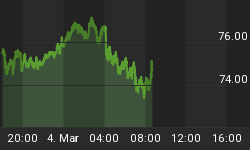I didn't create this title. This is the title of an article in FT last week by George Soros, someone needs no introduction. In the article, he provides great discussions on the root cause, reason and consequence of the current credit crisis, which has widened far beyond just the initial subprime area.
A normal boom and bust credit cycle is simply easy credit causing people to push up property price, in turn increasing the amount of credit, which creates a self-reinforcing cycle until the bubble bursts. This has happened many times throughout history, and when bubble bursts, people suffer a little but after some time, things come back.
But things has changed a lot during last 10-20 years. In order to prevent recession and eliminate credit bust period, the Fed and government have intervened repeatedly both monetarily and fiscally whenever financial market is in trouble. They have flooded the market with easy credit by providing large liquidity and lowering short term interest rate. As a result, they have prolonged the bull market and credit boom period as long as they can to keep people happy. This is similar to "treating a drunk by giving him another drink", as well said by a investment advisor. Whether people will have to pay for this kind of temporary shock therapies by suffering deeper pain in a very long bear market with dead credit, has been beyond Fed's consideration. Good job, Greenspan. Poor Bernanke, as people say, timing is everything.
This is also the main reason behind the deregulation of financial institutions during last 20 years, since Fed needs Wall St to fully corroborate, utilize and leverage all the easy credits they provide. Pretty soon we are at the mercy of investment banks doing their own risk management with no reserves required and no regulatory oversight (and we know they have done a great job on evaluating risk on both their products and their own firms!), not like the good old days when local and traditional commercial banks were required by regulations to have sufficient reserves to make loans and mortgages. And unnecessarily keeping interest rate low forever has further increased the level of easy credits and liquidity.
At the same time, do our rating agencies provide any oversight to help the public? At least not in the complex structured product area such as mortgages. Rating agency and structured product group, the most profitable group at Wall St, are basically using the same black box computer model and assumption to price and rate their exotic, complex MBS products no one can understand. Trust the computer, sure. But why do we still need the rating agency then? Whatever the structured group says, we take your word for it. But did someone also say computer is garbage in and garbage out? Well, previously everything out of their shop was triple A rated, not garbage. Somehow now they are all junk rated and become garbage. It must be our own fault to mess them up.
"Everything that could go wrong did. What started with subprime mortgages spread to all collateralized debt obligations, endangered municipal and mortgage insurance and reinsurance companies and threatened to unravel the multi-trillion-dollar credit default swap market. Investment banks' commitments to leveraged buyouts became liabilities."
George continues, "If federal funds were lowered beyond a certain point, .....the ability of the Fed to stimulate the economy comes to an end." Where is that point? George Soros didn't want to say, but he probably feels it is getting very close and the reason why he wrote this article. Maybe at or slightly below 3%?
For believers of the theory that low interest rates can save us, just look at Japan for the last 10-15 years; zero or even negative interest rate has not help much to stimulate the economy after the burst of both stock and real estate bubbles. George's most interesting statement is: "the current crisis marks the end of an era of credit expansion based on the dollar as the international reserve currency."
What he didn't say is, if US dollar loses its reserve status, there is no obvious replacement currency, at least not at this moment. What happens then? One possible, likely and logical solution could be that countries around the world would consider gold as their reserves again.
Does George Soros imply that we are returning to gold standard?
















